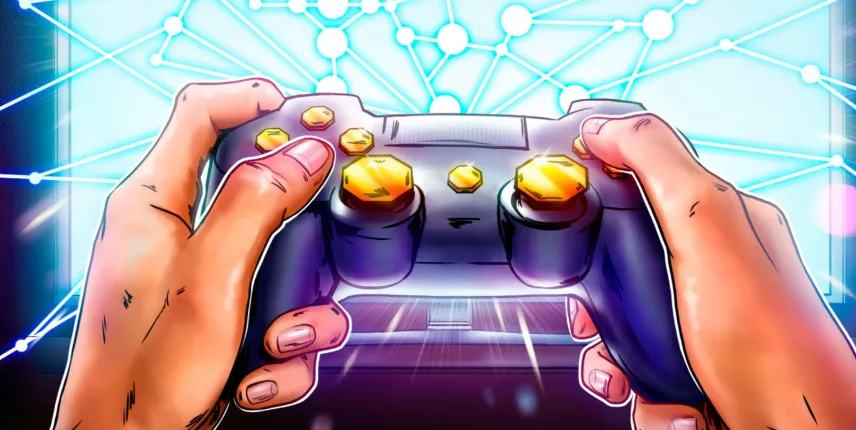How TON Blockchain is revolutionizing the gaming industry
Introduction:
The gaming landscape has evolved dramatically over the past decade, with new technologies reshaping how players interact, compete, and even monetize their in-game experiences. From simple 2D arcades to massively multiplayer online worlds, the industry has grown in complexity and scope. However, one of the most significant changes on the horizon involves blockchain integration. This emerging technology promises heightened security, true ownership of virtual assets, and the potential for sustainable in-game economies. Against this backdrop, TON in the gaming industry stands out as a dynamic platform poised to transform traditional gaming models into decentralized ecosystems of play, trade, and collaboration.
How blockchain is transforming the gaming industry:
Blockchain-based infrastructures offer a system where game developers and players alike benefit from transparent transactions and verifiable ownership of digital goods. By reducing reliance on centralized servers and intermediaries, blockchain technology mitigates risks such as fraud, server manipulation, and data loss. This decentralized approach also fosters greater trust within communities, enabling new revenue streams for studios and fairer rewards for players. Already, Blockchain games using TON and other platforms illustrate how distributed ledgers can integrate seamlessly with existing game mechanics, facilitating near-instant asset transfers and borderless participation.

The role of TON in creating new opportunities for gamers:
Thanks to its high scalability and transaction throughput, this blockchain paves the way for enhanced gaming experiences that cater to thousands, if not millions, of users simultaneously. By leveraging fast confirmation times, the platform empowers gamers to trade items or tokens swiftly without prohibitive fees. Moreover, TON’s role in play-to-earn models is becoming more apparent, as developers can design ecosystems where players monetize their time and skill, turning casual participation into viable income.
TON’s impact on gaming platforms:
Gaming platforms traditionally rely on centralized structures where servers handle everything from user authentication to trade logs. With the introduction of Benefits of TON for gaming platforms, operators can reduce costs associated with database management and security while maintaining a frictionless user experience. Furthermore, the platform’s interoperability allows game developers to integrate blockchain features without overhauling existing architectures.
Decentralized assets, secure transactions, and transparency:
One of the standout advantages of blockchain-based gaming is the capacity for Decentralized in-game assets. Instead of mere server records, these virtual items exist on a distributed ledger, granting players genuine ownership and the freedom to trade peer-to-peer. In tandem, Secure transactions in gaming become a reality, as cryptographic protocols defend against fraudulent activity or unauthorized duplications. Such transparency builds trust, as players can verify asset histories and transaction details without relying on a single controlling entity.
NFTs and gaming on TON:
The rise of non-fungible tokens has introduced unique possibilities for player-driven economies. NFTs and gaming on TON combine the collectible appeal of digital tokens with the platform’s high-performance capabilities, enabling rapid sales, auctions, and exchanges. Each NFT, representing a one-of-a-kind in-game item or character, carries proof of authenticity and scarcity, creating true value for collectors and competitive players alike. .
The use of NFTs to build in-game economies:
An NFT-based economy brings a radical shift in how items are created, distributed, and valued. By minting assets as tokens on the blockchain, developers imbue them with permanence and verifiable rarity. Over time, these items can appreciate in value as their availability diminishes or their utility in gameplay evolves. Trading becomes frictionless as players interact in Decentralized in-game assets marketplaces, retaining control over their assets without intermediary interference. This structure also encourages the growth of secondary markets, where players can buy, sell, or barter items to enhance their overall gaming experiences.
Smart contracts in gaming:
When it comes to building a robust, player-focused environment, Smart contracts for gaming economies offer a layer of automated logic that enforces fair play and transparent rewards. Developers can encode rules to release items, manage tournaments, or distribute in-game currencies based on clearly defined conditions. This level of programmability reduces the potential for human error or exploitation and gives rise to self-governing systems that remain operational 24/7. As a result, players can expect a more balanced and equitable gaming landscape where every transaction adheres to the immutable rules set forth by the contract.

How smart contracts automate gaming processes and payments:
Beyond facilitating gameplay mechanics, smart contracts streamline payment distributions and revenue-sharing models. For instance, when players complete a quest or win a tournament, the prize pool can be instantly disbursed according to the contract’s instructions—no manual oversight required. This eliminates disputes and ensures that all participants are rewarded fairly and promptly. Smart contracts also open doors for creative monetization strategies, such as royalty programs for content creators, or incentives for community-driven modding.
Conclusion:
The integration of blockchain into gaming marks a pivotal moment in the industry’s evolution. Traditional models based on centralized control and opaque governance are giving way to decentralized environments where player agency, transparency, and security define the core experience. As more studios explore these possibilities, novel pathways emerge for digital ownership and community engagement. While challenges remain—such as user education and the refinement of intuitive interfaces—the potential rewards are evident in the growing wave of titles and platforms embracing blockchain.
Why TON is a key player in the future of gaming:
Combining scalability, speed, and advanced smart contract functionalities, this blockchain ecosystem stands ready to support the next generation of decentralized gaming. Its infrastructure supports rapid transactions and robust tokenization mechanisms while offering developers the flexibility to integrate innovative features at their own pace. Above all, it delivers solutions that directly address common pain points in the gaming world, from high fees to asset fraud. By championing player ownership and a decentralized approach, TON in the gaming industry is poised to unlock immersive, prosperous, and community-driven experiences that redefine digital entertainment for years to come.